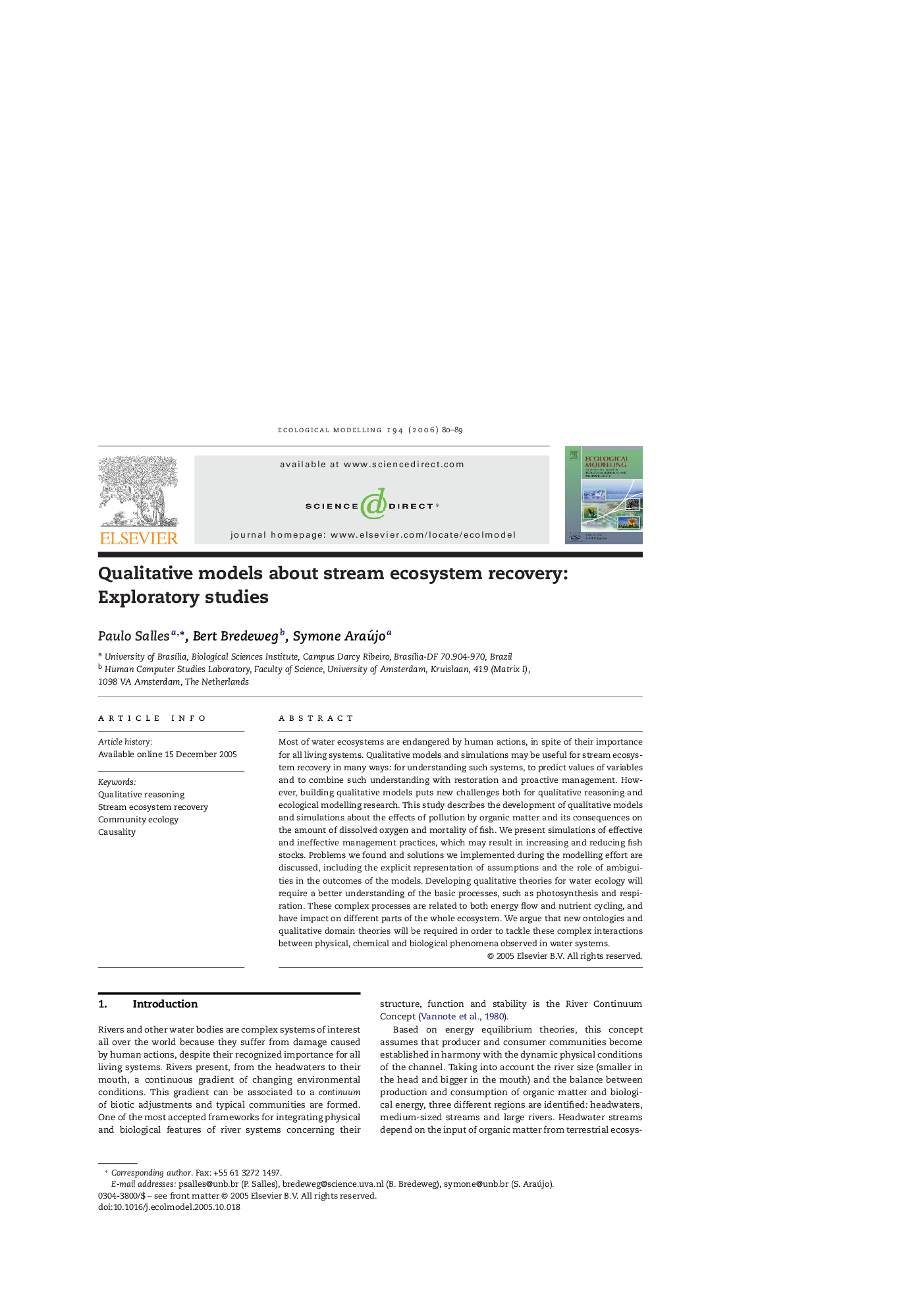| Article ID | Journal | Published Year | Pages | File Type |
|---|---|---|---|---|
| 4379181 | Ecological Modelling | 2006 | 10 Pages |
Abstract
Most of water ecosystems are endangered by human actions, in spite of their importance for all living systems. Qualitative models and simulations may be useful for stream ecosystem recovery in many ways: for understanding such systems, to predict values of variables and to combine such understanding with restoration and proactive management. However, building qualitative models puts new challenges both for qualitative reasoning and ecological modelling research. This study describes the development of qualitative models and simulations about the effects of pollution by organic matter and its consequences on the amount of dissolved oxygen and mortality of fish. We present simulations of effective and ineffective management practices, which may result in increasing and reducing fish stocks. Problems we found and solutions we implemented during the modelling effort are discussed, including the explicit representation of assumptions and the role of ambiguities in the outcomes of the models. Developing qualitative theories for water ecology will require a better understanding of the basic processes, such as photosynthesis and respiration. These complex processes are related to both energy flow and nutrient cycling, and have impact on different parts of the whole ecosystem. We argue that new ontologies and qualitative domain theories will be required in order to tackle these complex interactions between physical, chemical and biological phenomena observed in water systems.
Related Topics
Life Sciences
Agricultural and Biological Sciences
Ecology, Evolution, Behavior and Systematics
Authors
Paulo Salles, Bert Bredeweg, Symone Araújo,
